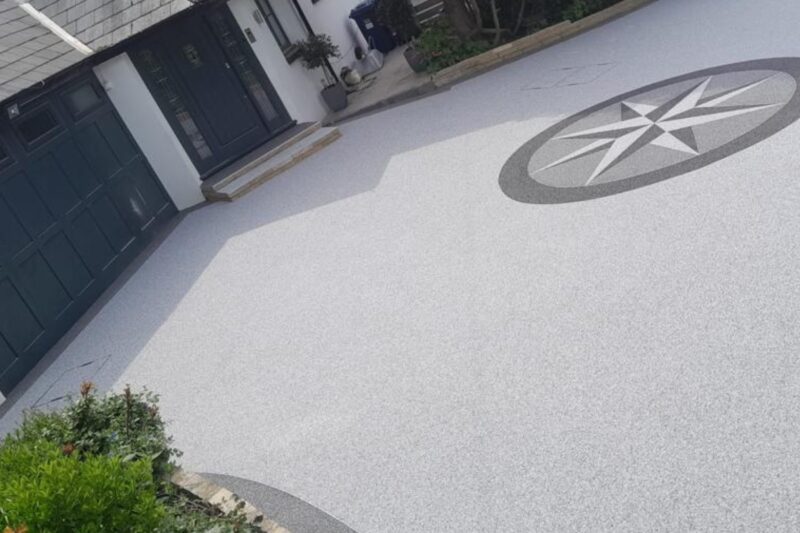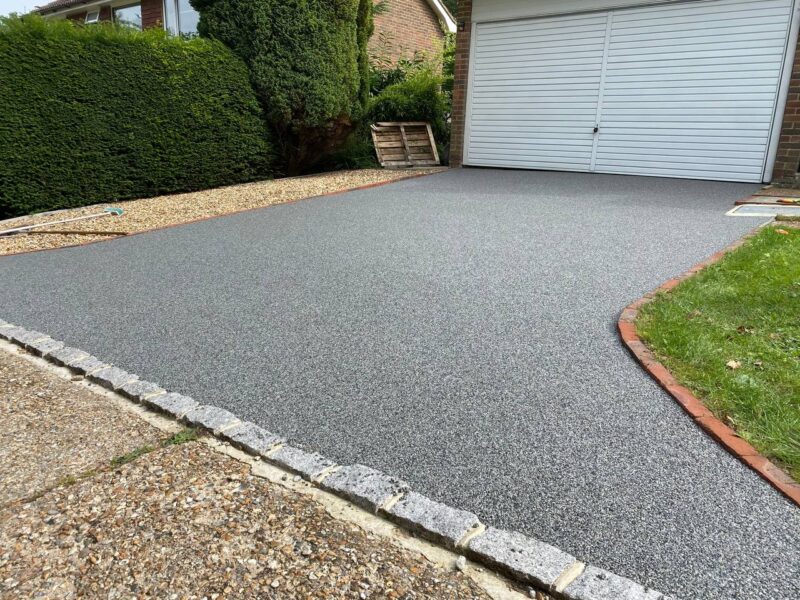As homeowners, we’re continually looking for ways to improve our homes, both in terms of aesthetics and functionality. One such area that often gets overlooked is the driveway. If you’re contemplating a revamp of your driveway or planning on installing a new one, resin driveways offer an excellent choice. In this comprehensive guide, we delve into the world of resin driveways, exploring their benefits, limitations, maintenance, and much more.
Understanding Resin Driveways

Resin driveways are a mixture of resin and stone aggregates, either bound or bonded together, which form a durable, aesthetically pleasing surface. They offer an alternative to traditional tarmac, gravel, or block paved driveways, providing a smoother, more visually appealing finish.
Why Choose Resin Driveways?
The popularity of resin driveways continues to surge, and it’s easy to see why. They offer a host of benefits, from their durability and aesthetic appeal to their low maintenance requirements and permeability. They are also incredibly versatile, offering a range of customisation options to suit your property’s aesthetics.
The Composition of Resin Driveways
Resin driveways are made through a process that combines natural stone aggregates with a high-quality resin. This combination creates a highly durable, permeable surface that can withstand substantial usage. The resin binds the stone aggregates together, forming a solid structure that allows for water to drain through, conforming to Sustainable Urban Drainage Systems (SUDS) principles.
The Benefits of Resin Driveways

Resin driveways offer numerous advantages, some of which are:
Durability
Resin driveways are known for their strength and resilience. They can withstand heavy traffic and endure various weather conditions without losing their structural integrity. The UV stability of the resin also prevents damage from prolonged exposure to sunlight.
Aesthetics
Resin driveways offer a sleek, modern look that can significantly enhance the curb appeal of your home. With a wide range of colours and textures available, you can customise your driveway to suit your home’s aesthetic.
Low Maintenance
Resin driveways require minimal maintenance, making them a cost-effective choice in the long run. They are resistant to weed growth, and cleaning usually involves a simple sweep or pressure wash.
Permeability
Resin driveways are permeable, allowing water to drain through the surface, reducing the risk of puddles, flooding, or water damage. This feature also means they adhere to SUDS, making them an environmentally friendly option.
Limitations of Resin Driveways

While resin driveways offer numerous benefits, they also have a few limitations, which include:
Price
Compared to other driveway options, resin driveways can be more expensive initially. However, their durability and low maintenance requirements often make them a cost-effective solution in the long run.
Installation Process
The installation process for a resin driveway can be labor-intensive, requiring a suitable sub-base and careful application of the resin and aggregates. Any imperfections during installation can lead to issues down the line.
Types of Resin Driveways
There are two primary types of resin driveways: bound resin and bonded resin. Bound resin driveways involve mixing resin with aggregate before laying it on a solid base, creating a smooth surface. Bonded resin driveways involve applying a layer of resin onto an existing surface, then covering it with decorative aggregate, creating a textured finish. Your choice between the two would depend on your specific requirements and preferences.
Factors to Consider When Choosing a Resin Driveway

When picking a resin driveway for your home, consider factors such as aesthetics, durability, type of use, and budget. Assess the overall aesthetic of your home, the expected lifespan of the resin material, the amount of traffic the driveway will handle, and your budget.
Assessing Your Resin Driveway Needs and Requirements
Before making your choice, evaluate your specific needs. This involves measuring your driveway’s size, evaluating your existing driveway’s condition, checking the drainage system, and considering functionality.
Choosing a Resin Driveway Installer
Selecting a reliable and experienced resin driveway installer is crucial to ensure a successful installation. Research potential contractors, check their credentials, understand their pricing, and assess their customer service.



